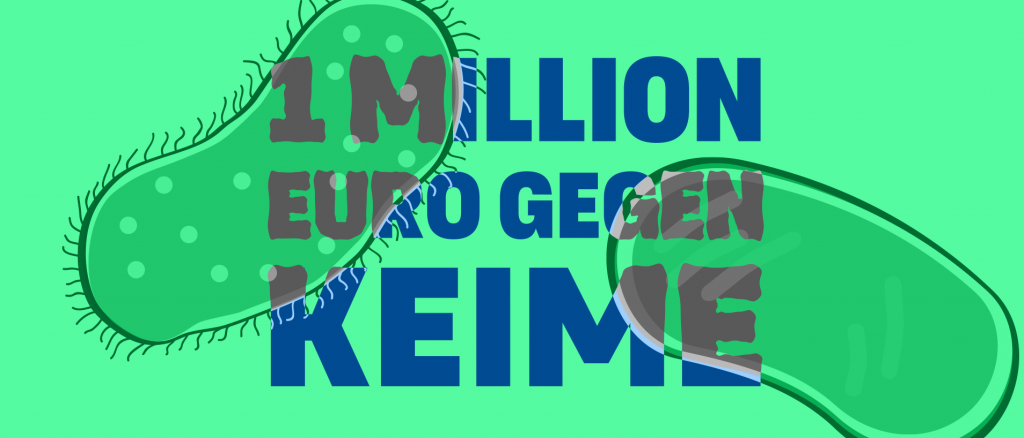
How can hygiene at the doctor’s office, the hospital, or in another medical context be improved?
In our special project “1 million against germs” we have sought the best ideas for digital solutions, educational measures or innovative training, both initial and advanced. The foundation is supporting the search with a total of 1 million euros to put the ideas into action.
In the course of the call for proposals, innovative ideas towards improving hygiene in the clinical and outpatient sector could be submitted until mid-2020 in three key areas:
- Education of (future) patients and relatives
- Initial, ongoing and advanced educational training
- Digital solutions for process and work organization
The foundation received more than 200 proposals. Of these, 27 applicants were invited to take part in an extensive selection process - based on the expert opinions of an interdisciplinary external jury. The teams of experts identified three proposals per key area as particularly convincing.
The EKFS acknowledged the achievements of these nine finalists inter alia with prizes, each amounting to 1,000 euros. The foundation also asked the applicants to submit a full proposal, which was in turn evaluated by reviewers.
The following innovative and outstanding projects have been funded since 2021:
The electronic nose “Cyranose 320” represents a new and non-invasive diagnostic instrument for the early detection of pathogens in the case of premature infants. It is supposed to identify germs as volatile organic compounds that are emitted with each breath taken as well as via secretions, and prevent the outbreak of a disease through early-stage detection. So-called “smellprints” of the most frequently occurring pathogens (Enterobacter cloacae, Klebsiella oxytoca and pneumoniae, enterococci and multi-drug-resistant Escherichia coli), which can pose a danger to premature infants, are supposed to be detected by the Cyranose. The artificial nose is therefore currently being made familiar with these smellprints. Detection must be established via a multitude of measurements.
More information at:
Keime riechbar machen - 2020 - Aktuelles - Philipps-Universität Marburg (uni-marburg.de)
Intended to be developed within this project are two games for families, adolescents, trainees or students in the medical, natural sciences or care sectors that take a critically analytical look at the topic of (hospital) hygiene. The game developers have brought two intriguing games to life: the interactive board game “Hygiene Rules” and a digital adventure game entitled “Hygiene im Wandel der Zeit” (‘Hygiene in the Changing Times’). Both games share the guiding principle that players approach the subject of hygiene in a variety of gaming modes on an intensive level. The analytical focus that arises is thus equally intensive. In the board game “Hygiene Rules”, knowledge about hygiene, germs and preventive measures is conveyed interactively – including the option to make additional use of multimedia content, quiz questions and mini-games via QR codes or NFC tag stickers by means of a mobile phone. The adventure game “Hygiene im Wandel der Zeit” lets the player digitally immerse themself in the subject of hygiene and is intended to make knowledge about hygiene learnable and intuitively experienceable in a playful fashion.
More information at:
In everyday life at hospitals, the men and women on staff from Hygiene are often perceived as bothersome and policing. This project wants to establish a psychological approach towards implementation to enable them to continue to communicate health maintenance and hygiene factors to the greatest extent. It is supposed to empower staff to be able to act with greater assurance and without tension in their field of work while making the successful enactment of the hygiene concept possible during everyday work at the clinic.
More information at:
Aktuelle Forschungsprojekte (uniklinikum-leipzig.de)
Medizinische Hochschule Hannover : Thomas von Lengerke (mhh.de)